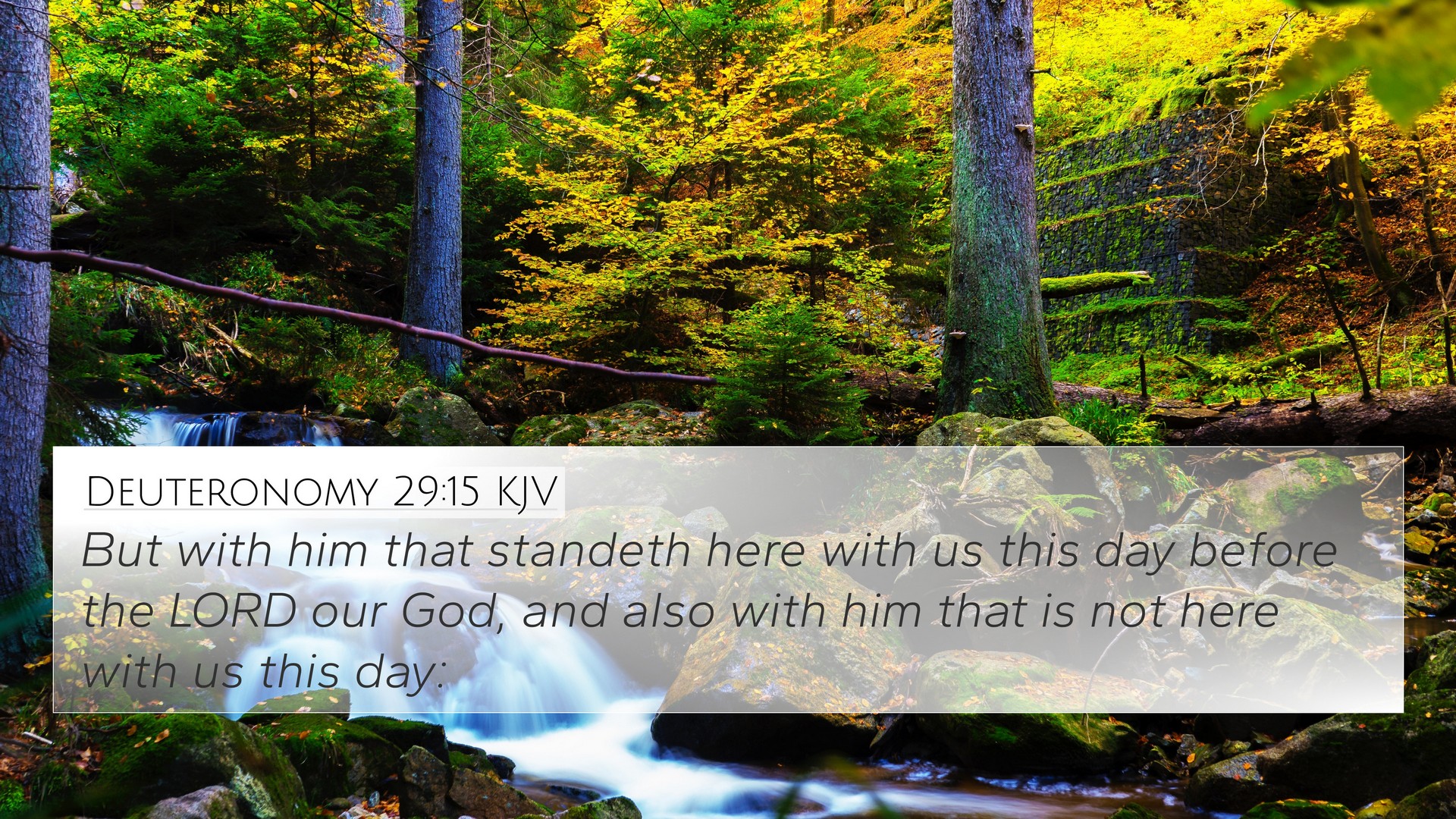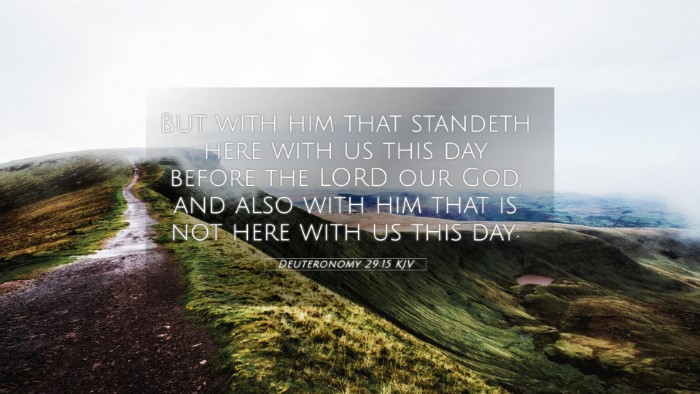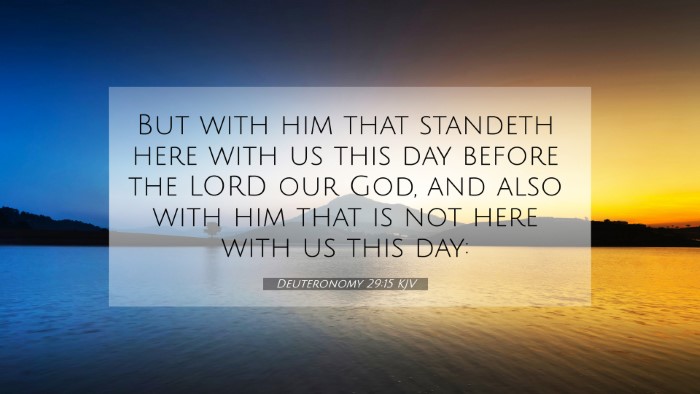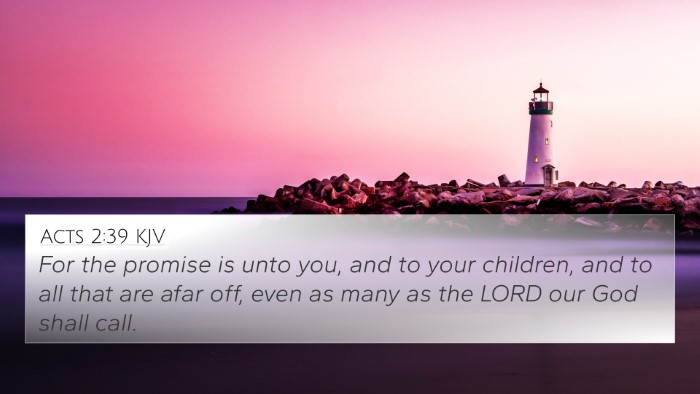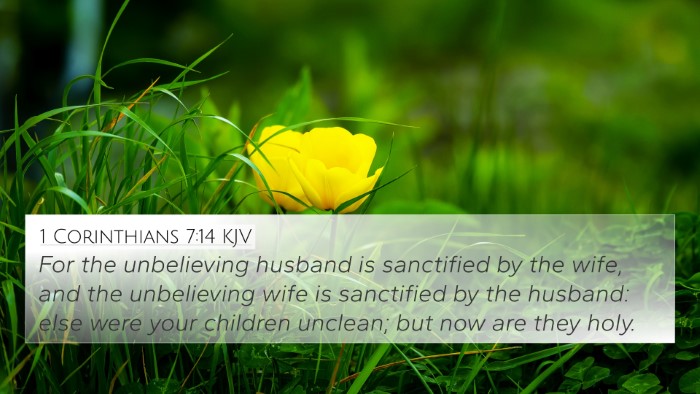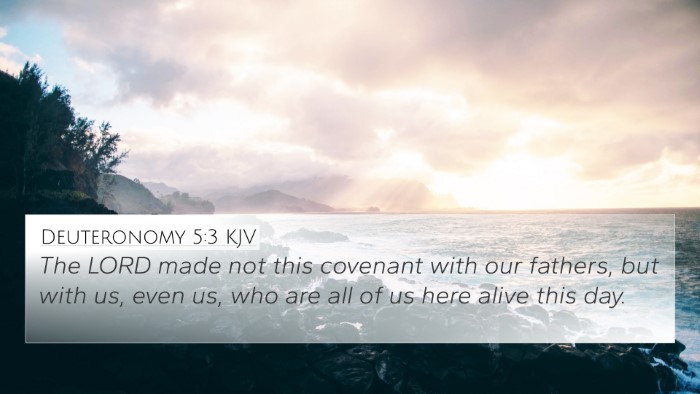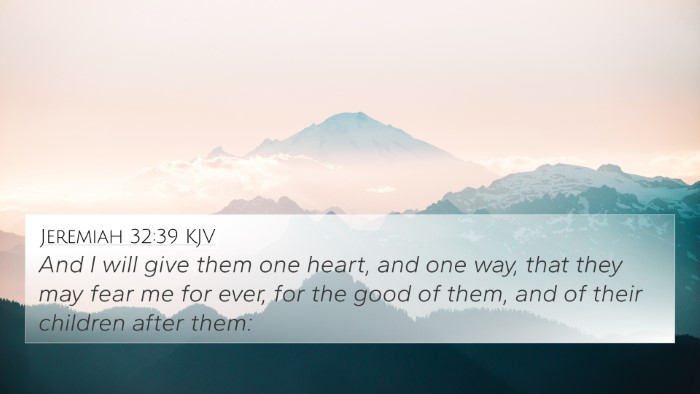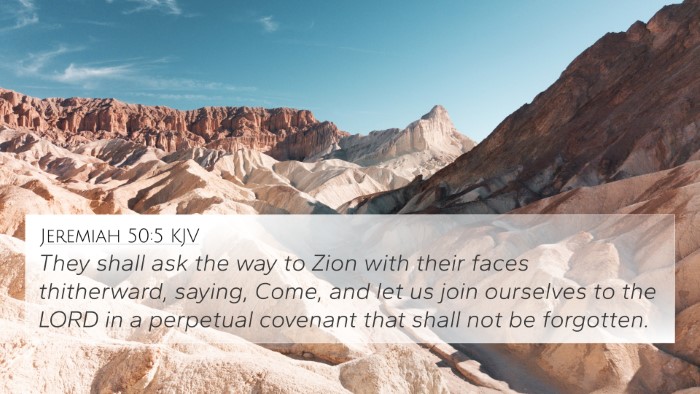Understanding Deuteronomy 29:15
Deuteronomy 29:15: "But with him that standeth here with us this day before the LORD our God, and also with him that is not here with us this day."
Verse Meaning
Deuteronomy 29:15 emphasizes the importance of unity and commitment within the community of Israel. This passage, situated within a covenant renewal ceremony, shows that God’s covenant extends not just to those present but also to future generations. Here, Moses addressed the Israelites just before they enter the Promised Land, reminding them that their responsibilities are interconnected with those who are not physically present.
Insights from Commentators
-
Matthew Henry:
Henry stressed the importance of covenant faithfulness, illustrating that the commitments made in present worship serve to bind future generations. Every member of the community bears the weight of this covenant, highlighting the collective responsibility that remains in the sight of God. The verse underscores that the awareness of God's presence and covenant should shape the conduct of the people, both present and absent.
-
Albert Barnes:
Barnes points out that this address by Moses serves as an invitation for all to participate in the covenant, regardless of whether they were physically at the gathering. This inclusive nature of the covenant signifies that individuals not present with the same understanding or commitment can still be engaged in fellowship with God. The verse acknowledges a broader spiritual family, extending to those who would come after.
-
Adam Clarke:
Clarke notes that this passage operates on multiple levels. It affirms the ongoing relationship between God and His chosen people. The anticipation of future generations embracing this covenant is paramount; it shows an understanding that God's promises are not confined to a single generation but transcend time. Clarke highlights that this verse serves as a reminder for the community to remember its foundation—a call not just to the present but to the future.
Thematic Connections
In understanding Deuteronomy 29:15, we see thematic connections throughout the Bible, reinforcing the notion of covenant community and generational faithfulness. The following Biblical references enhance our comprehension:
- Exodus 19:5-6: A call to be a holy nation emphasizes the community aspect of covenant.
- Deuteronomy 6:4-7: The imperative to teach future generations about God's commandments indicates a continuity of faith.
- Joshua 24:15: Joshua reiterates the importance of choosing whom to serve, entrenching the notion of personal and communal choice within God's covenant.
- Psalms 78:4-6: The psalmist discusses the need to recount the deeds of the Lord to the next generation.
- 2 Timothy 1:5: The mention of Timothy’s faith passed down from his grandmother and mother shows the value of generational faith.
- Hebrews 11:22: Joseph’s faith in God’s promises for future generations demonstrates the ongoing impact of covenants.
- Romans 11:17: Illustrates the grafting of the Gentiles into God's covenant people, reaffirming inclusivity in God's plan.
Cross-Referencing Biblical Texts
This verse serves as a central point around which multiple biblical themes revolve. Cross-referencing these themes can provide a deeper understanding of the implications of collective agreement and future generations’ responsibilities:
-
Bible verse parallels: Compare Deuteronomy 29:15 with Exodus 3:6, where God speaks to past and present circumstances.
-
Thematic Bible verse connections: Relate this verse to Matthew 28:19-20 wherein Jesus commissions His followers, including future generations.
-
Cross-referencing Bible study methods: Use tools for Bible cross-referencing to examine the influence of community on faith across the scriptures.
-
Identifying connections between Old and New Testament: Analyze how the New Testament fulfills aspects of the covenant expressed in this verse.
-
Comparative study of Pauline epistles: Explore how Paul’s letters emphasize the responsibility of believers to maintain covenant integrity.
Conclusion
Deuteronomy 29:15 extends an invitation for believers to understand their role within the covenant not just as individuals but as a collective body, uniting present and future generations in their relationship with God. This verse acts as a testament to God's faithfulness and the importance of remembering one’s duties toward the covenant community, thus laying a framework for understanding diverse aspects of scripture through inter-Biblical dialogue.
As individuals explore their faith through scripture, identifying tools for Bible cross-referencing becomes essential. Practical application of cross-referencing, thematic exploration, and understanding interconnections aids in grasping the depth of the biblical narrative.
